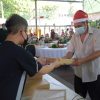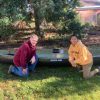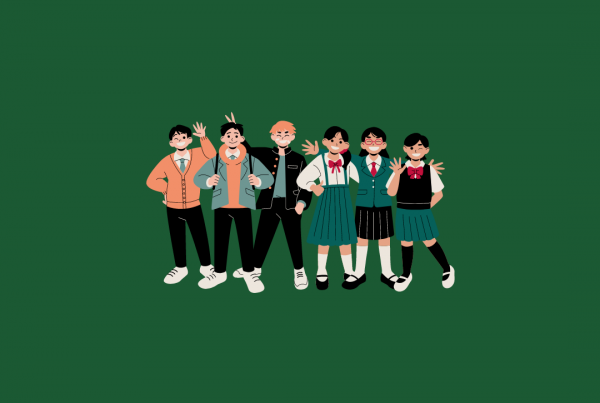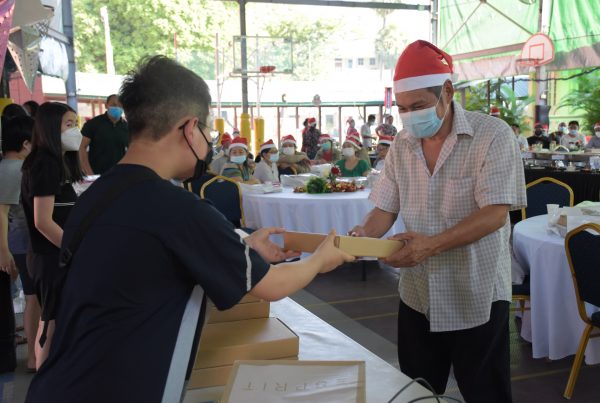In the past two years, Youth Action Aid (YAA) has been a very active ASA at ISY. Hosting a variety of events, fundraisers, and awareness projects, it is challenging to not have heard of the club and its presence at the school. YAA would like to further inform the student body about what the group is all about. Student leaders Jun (G12) and Wine (G12) were interviewed; below is their discussion on a variety of topics in regard to the club.
At its core, what is YAA about, and how does the club integrate these values through its activities and spread its message?
Jun: YAA overall has always been focused on aiding the youth, especially in Myanmar, whether that aid is through fundraising or other events. Our focus is currently providing the children of Myanmar with education; this is reflected in the activities and events we have been carrying out.
Wine: Spreading the message has been harder to do during the pandemic. However, we still try to host events for elementary and secondary students through YAA wherever possible.
Jun: Just a reminder, when we say youth, we don’t mean people strictly outside of our school community. We also focus on reaching those here at ISY, especially during these years with Covid.
Speaking of Covid, a huge obstacle for many clubs and ASA’s at ISY was the pandemic. How did Covid affect YAA’s functioning and how did you adjust accordingly?
Jun: We had a lot of things planned before Covid-19, such as “Tees for Trees” or the “Monastery School Project” where we were trying to bring some local students in Myanmar into the ISY Science Laboratories. Unfortunately, we had to discontinue these plans and adapt to the online situation. This shifted our overall focus towards the ISY students rather than students outside. This was the main obstacle where we had to adapt all our different projects which were already planned out according to this completely new situation.
Wine: A lot of plans, such as our merch website, were complicated, and just like other groups, we found it challenging to raise funds online since a lot of people had access to the same things and there was very little we could offer online.
With around 2 dozen members, YAA is a fairly large group when compared to other clubs. As student leaders, how do you implement effective delegation to the functional working of the club?
Jun: Our main focus was just trying to make sure that everyone’s doing something that they’re passionate about, or think their skillset works better towards. So we’ve had different divisions for each project where we didn’t have a fixed, concrete group but rather something for each project where members could assume specific roles and responsibilities. For us, that was an important factor as we wanted to make sure that people don’t just come to the meetings and have nothing to do. This led to creating groups like the design team and the logistics team that would better fit each of the members and what they could offer to the group. Being a large group, we could actually have multiple projects going on with multiple events going on which was great!
Wine: This is definitely something we had difficulty with at the very beginning because it was harder to keep track of everybody during the actual YAA meetings rather than outside of the club where we could reach out to members individually. We also had a personal connection with many of the members so it was easy to reach out to them.
True, a larger group may entail a wider range of problems to be dealt with as student leaders. Were there any further particular hurdles that you faced? If so, how did you overcome them?
Jun: Well I think the main challenge as leaders, aside from the Covid situation, was making sure that all our activities are meaningful and the members are passionate about them as well as engaged with the different projects. Since I’ve been a member of other groups as well, I know a project can get really boring sometimes and you might start to lose interest. So I think getting members engaged, and like Wine said, getting them to participate despite being online was another challenge which was something we constantly tried to improve on based on how people were reacting to the different changes that we were implementing.
Wine: I was also a YAA member before becoming a leader, and looking back, I never really gave enough credit to the previous leaders! There’s a lot going on in the background like communicating with different groups and Mrs. Powers, getting things approved, and always staying on top of things. A lot of organization was required, especially after signing a contract with the Media League since there’s a lot of prior planning to be taken care of and align a lot of activities and projects if we plan to collaborate with another group.
YAA definitely undertook a lot of projects these past 2 years. Looking back at this period, what, in your opinion, are some of the greatest accomplishments of the club?
Jun: Overall, YAA was also generally able to keep up with the pace of hosting events online and getting people to join and participate. A lot of our events were successful and we did try to come up with a lot of different events besides the movie night and deviated from common or cliche events which was an accomplishment. The overall growth of the mentorship program was a great accomplishment that we achieved throughout the two years of YAA.
Wine: In my opinion, it would be our perseverance as well. A lot of our events were successful, however, there were a few that weren’t but allowed us to identify our weaknesses and strengths. These instances helped give us direction, especially during the pandemic when it’s very hard to come up with new ideas and events. I’m really happy that we kept persevering and bettering ourselves to reach the stage we find ourselves at now.
What are some upcoming goals for the club and how do you plan to realize them?
Jun: Since we’re slowly going back to school now, our main goal is to carry on these different projects that we already have and apply them to the normal school setting, especially with the mentorship program. We’re going to have new leaders next year and we’re trying to help them transition to this new phase. We don’t necessarily know if they will choose to continue projects that we have been working on. If they do choose to do so, our main focus will be to make sure of a smooth transition into the offline setting. It is important for us to make sure that the new leaders know what to do and know how to deal with the change in situations.
Wine: We think the 11th Graders at the moment are very responsible and clever. We’re going to entrust a lot of the major decisions to them. A major project right now is the IB guide, and depending on how it goes we’re going to have a few meetings with the new leaders and have other input as well. As previous leaders, we will try to guide them into this new setting while allowing the new leaders to make their executive decisions.
On the topic of successors, as you approach graduation and reach the finale of your time with YAA, what advice would you like to impart to upcoming student leaders as well as members in the near future?
Jun: One thing I’ve realized over the past few years is that one simply has to keep moving on. It’s really easy to give up on a service group and move on because sometimes you just think of it as a CAS project and nothing more. However, I think that by continuing on, you can actually learn a lot. Even being a leader or a member, I think there are always things that you realize and there’s always room for growth. As Wine said, one of our accomplishments was perseverance, and that’s something that the next leader should be emphasizing on as well. Another piece of advice is to recruit a lot of members, from various grades
Wine: Recruiting members from different grades gives you different perspectives. Sometimes events can be targeted towards a certain grade and this allows beneficial input from that particular grade which results in a more successful event. Secondly, at the very end of the year, when you’re giving the service group off to another leader, they still have members and don’t necessarily need to start from scratch. You should also strive to have a good relationship with the members as student leaders, not only during the meeting but even outside of the club interactions. If you don’t, it will affect their participation during the meeting as well which is why it’s important to maintain good relationships and take initiative to communicate with members.
Jun: Another thing, I wish the next leaders would be bolder with their decisions. One thing that Wine and I struggled with was making sure that we got things done when needed. With the new contract that we signed with the media club, we could have been more upfront with all our decisions and I think that’s one place for improvement.
Written by YAA
Published by Global











